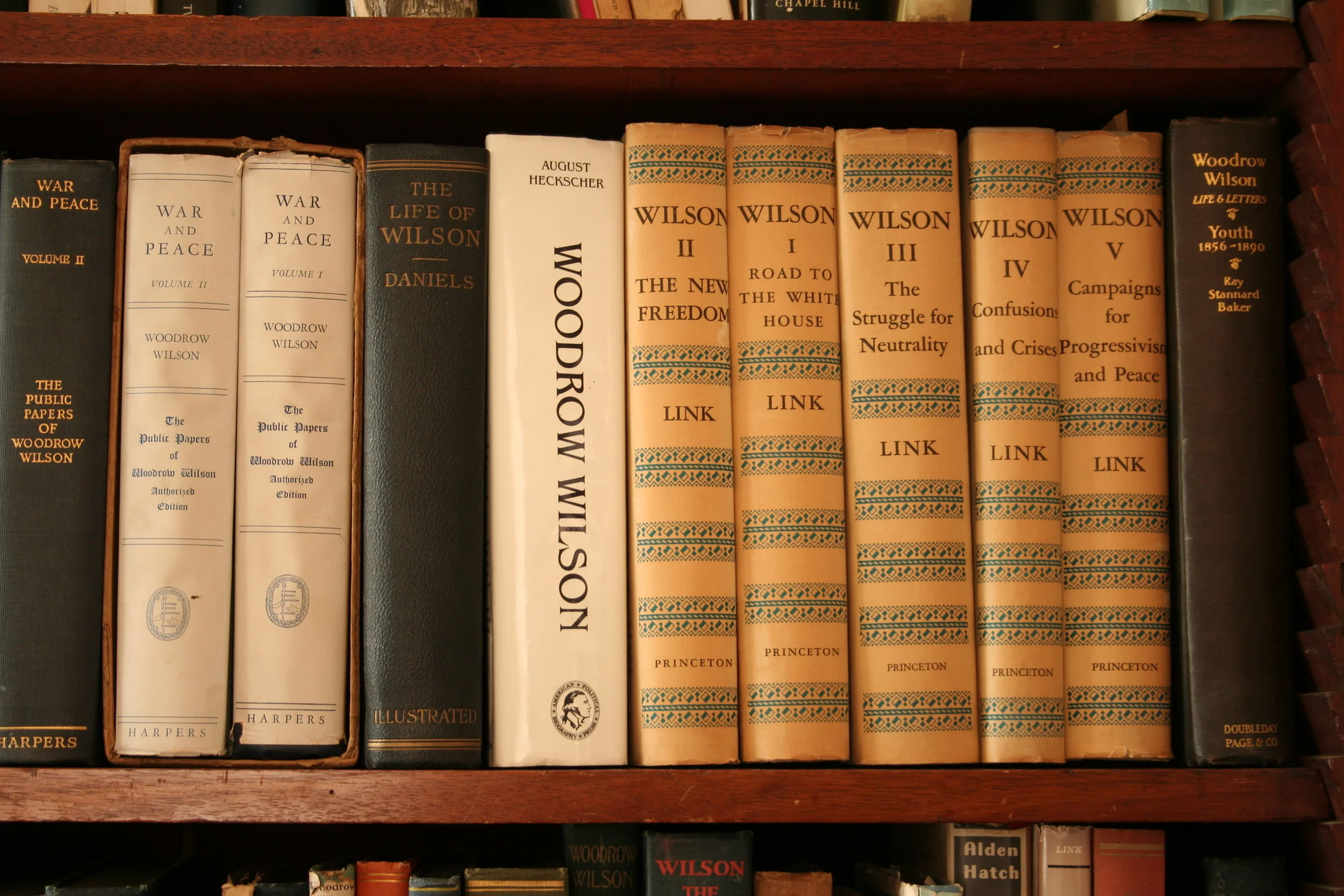Scott Nearing
/Arthur S. Link was one of the premier 20th-century historians of Woodrow Wilson and also the editor of the monumental Woodrow Wilson Papers. Here at the archive, we have some of Link’s research files. These include a substantial pamphlet collection on Wilson and his times. Many of the pamphlets cover debates in congress or significant news articles. A number of items give us the views of Wilson from foreign countries.
“The Menace of Militarism: An Analysis, a Criticism, a Protest and a Demand.” Scott Nearing. New York: Rand School of Social Science, 1917
What popped out of the list as especially interesting, though, was this small booklet by Scott Nearing. Just before World War I, Nearing worked as a social science professor at Toledo University, but he was also active with the American Union against Militarism, delivering speeches against the United States getting involved in the fight in Europe.
By the summer of 1917, Nearing was fired from his teaching job, living in New York City, and helping to establish the People’s Council of America for Democracy and Peace. He soon joined the Socialist Party and became a lecturer for the Party’s Rand School of Social Science. He would go on to write many pamphlets for the Rand School, criticizing contemporary society.
Nearing would live to be over 100 years old. He spent his life advocating for a number of radical causes, including feminism, Communism, simple living, and vegetarianism. In the film, Reds, Nearing was interviewed about his friend, the journalist John Reed, and the heady days of the Russian Revolution.
What is notable about this pamphlet in our collections is how the words of Woodrow Wilson, many of them from the 1916 campaign, are used against the idea of America getting involved in war.
Americans were used to criticizing Germany, and to some extent the Austro-Hungarian Empire, for the decades of militarism that led to the tremendous build up in arms that helped to make the Great War so horrific. Nearing makes the point that these American critics, including President Wilson, had quickly become hypocrites as the country was drawn into the conflict. Arms production, conscription, censorship, and secrecy all threatened the ideals that were trumpeted by the United States so often.








